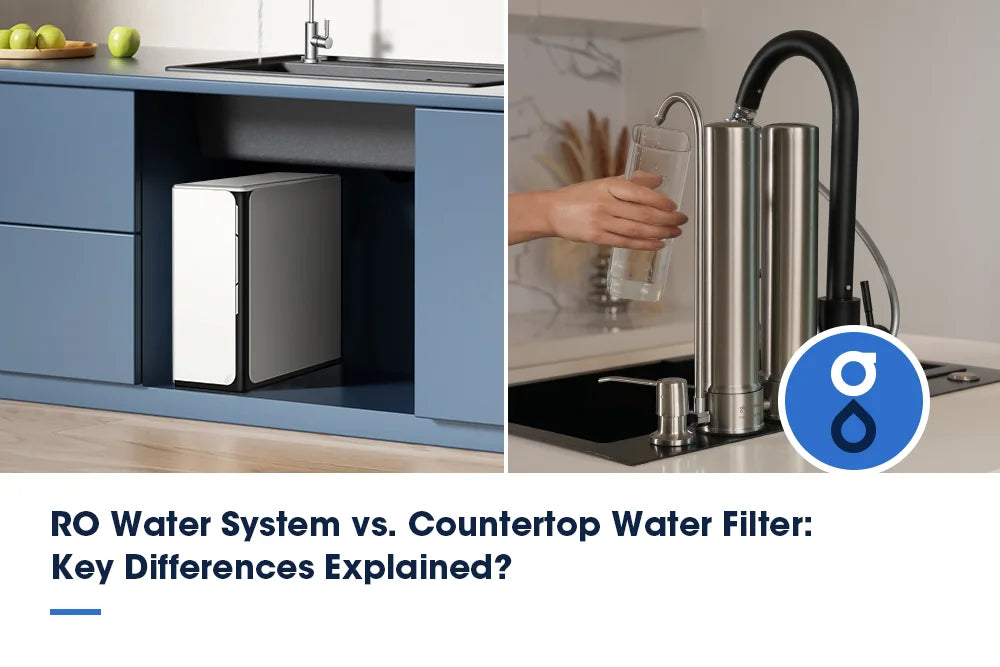Table of Contents:
The importance of clean water for health
Common chronic illnesses linked to water quality
Benefits of water filtration for managing chronic illness
Choosing the right water filtration system for chronic illness
Personal stories and case studies
Practical tips for incorporating clean water into daily life
Conclusion
Have you ever thought about how the quality of your water could affect your health? If you're dealing with a chronic illness, the water you drink can make a significant difference. Poor water quality, filled with contaminants, might be exacerbating your symptoms. On the flip side, filtered water, free from impurities, could help manage your condition. From improved hydration to better nutrient absorption, the benefits are profound. But how does clean water contribute to your health, and what's the best way to ensure you get the purest form? Let's explore this together.
The importance of clean water for health

Water is the essence of life, sustaining every cell in our bodies. While we often take clean water for granted, its quality profoundly impacts our health. Contaminated water can harbor harmful pathogens, heavy metals, and chemicals, seriously threatening wellbeing. For individuals living with chronic illnesses, the stakes are even higher. Clean, filtered water becomes a necessity and a crucial component of managing health and improving quality of life.
Common chronic illnesses linked to water quality
The connection between water quality and chronic illness is well-documented. Poor water quality has been linked to a range of health conditions, including gastrointestinal diseases, neurological disorders, and even certain cancers. For example:
- Gastrointestinal issues: Contaminants like bacteria and parasites can cause or exacerbate irritable bowel syndrome (IBS) or inflammatory bowel disease (IBD).
- Neurological disorders: Heavy metals like lead and mercury in water can contribute to neurological issues, including cognitive decline and developmental disorders in children.
- Cancer: Long-term exposure to chemicals such as arsenic, nitrates, and trihalomethanes in drinking water has been associated with an increased risk of various cancers.
For those already dealing with chronic illnesses, consuming contaminated water can lead to more frequent flare-ups, slower recovery times, and additional health complications.
Benefits of water filtration for managing chronic illness

Water filtration systems play a vital role in protecting individuals from the harmful effects of contaminated water. By removing pollutants, heavy metals, and pathogens, these systems ensure that the water consumed is pure and safe. For people with chronic illnesses, this can lead to several benefits:
- Reduced exposure to toxins: Filtering out harmful substances minimizes the risk of aggravating existing conditions or triggering new health issues.
- Improved hydration: Clean water enhances the body's ability to absorb and utilize essential nutrients, aiding in better hydration and overall health management.
- Support for immune function: Pure water can help support a more robust immune system, which is particularly important for those whose conditions may weaken their natural defenses.
Choosing the right water filtration system for chronic illness
Selecting the right water filtration system is essential, especially for those with chronic health issues. Here are some factors to consider:
- Type of contaminants: Conduct a water test to determine the specific contaminants in your water supply. Then, choose a filtration system that effectively removes those substances.
- Filtration technology: Options like reverse osmosis, activated carbon filters, and UV purification each have their strengths. Reverse osmosis system, for example, is highly effective at removing a wide range of contaminants, including heavy metals and chemicals.
- Maintenance and ease of use: A system that is easy to maintain and operate is ideal for individuals with chronic illnesses. Regular filter changes and system checks should be straightforward to ensure ongoing water quality.
- Certification: Look for systems certified by organizations like NSF International, which tests and certifies products for safety and effectiveness.
Personal stories and case studies
Real-life experiences often illuminate the connection between water filtration and managing chronic illness. Your understanding intensifies when you hear personal experiences and witness the health transformations that clean water can bring about. Let's look at some of these stories:
- Consider John, a long-time sufferer of digestive issues. He switched to filtered water and noticed a significant reduction in his symptoms. His story is a testament to the impact of clean water on personal health.
- Next, take the case of Lisa, who battled skin conditions for years. Her skin showed marked improvement when she started using filtered water for her daily needs.
- A community in rural Africa saw a dramatic decrease in water-borne illnesses after implementing a water filtration system. The community impacts were significant, highlighting the importance of clean water.
- Lastly, a study of arthritis patients revealed that those who switched to filtered water reported less joint inflammation and pain.
These experiences underscore the power of clean water in managing chronic illness. It's not just about hydration; it's about health transformation and longevity.
Practical tips for incorporating clean water into daily life
Incorporating clean water into your daily routine doesn’t have to be complicated. Here are some practical tips:
- Invest in a quality filtration system: Whether it's a countertop filter, an under-sink system, or a whole-house solution, ensure you have access to clean water at all times.
- Stay hydrated: Aim to drink at least eight glasses of filtered water daily. Proper hydration is crucial for overall health and can help manage chronic conditions.
- Use filtered water for cooking: Boiling or cooking with filtered water ensures that your meals are free from contaminants that might otherwise compromise your health.
- Monitor water quality: Regularly check your water quality, especially if you notice any changes in taste, odor, or color. This will help you ensure that your filtration system is functioning correctly.
Conclusion
So, you now see how crucial clean water is for managing chronic illnesses. A good water filtration system can tangibly improve your health and well-being. Don't underestimate the power of pure water—it's not just about quenching thirst; it's about giving your body the best fighting chance. Start making a difference today, invest in a quality water filtration system like Glacier Fresh. Remember, every step towards cleaner water is towards a healthier you.

















